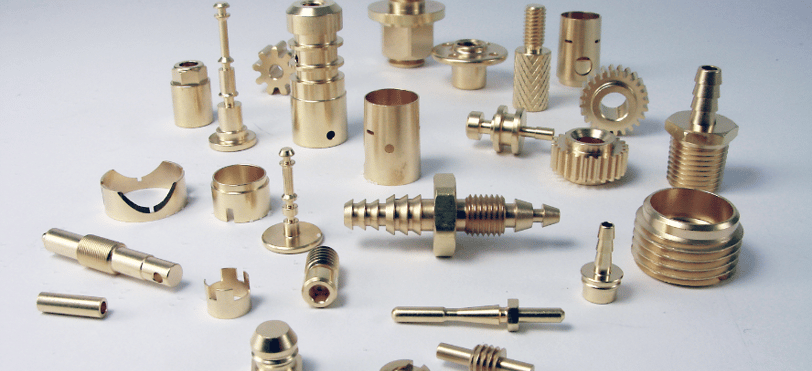
CNC precision machining: the "invisible hand" of precision manufacturing of medical devices
With the rapid development of medical technology, medical devices are constantly breaking through in the direction of miniaturization, complexity and high precision. In this process, CNC precision machining technology has become one of the core technologies in the field of medical device manufacturing with its excellent precision, flexibility and repeatability. This article will explore how CNC machining can enable medical device production and promote innovation and upgrading in the medical industry.
2/12/20252 λεπτά ανάγνωσης


I. Strict requirements of medical devices for precision machining
Medical devices are directly related to the life safety and treatment effect of patients, and their manufacturing must meet the following core requirements:
Ultra-high precision: For components such as surgical robot joints and heart stents, the tolerance must be controlled at the micron level (within ±0.005mm);
Complex structure: The multi-curved design of micro-endoscope probes and artificial joints needs to break through the traditional processing limits;
Processing of biocompatible materials: Precision molding of high-hardness and corrosion-resistant materials such as titanium alloys, cobalt-chromium alloys, and medical PEEK;
Sterility and reliability: The surface finish of components must reach Ra0.4μm or less to avoid bacterial growth while ensuring long-term stability.
II. Technical advantages of CNC precision machining
Micron-level precision control
Through multi-axis linkage (five-axis/turning and milling compound) and nanometer-level resolution servo system, CNC turning and milling can achieve one-time molding of complex geometric shapes, meeting the processing needs of precision parts such as orthopedic implants and dental implants.
Efficient processing of complex parts
Using CAD/CAM software modeling and simulation, CNC turning and milling can accurately process complex structures such as microchannels of microfluidic chips and special-shaped holes of neurosurgery guides that are difficult to achieve with traditional processes.
Wide material adaptability
From medical stainless steel to ceramic composites, CNC turning and milling suppliers ensure non-destructive processing of brittle materials (such as zirconia crowns) and super-hard alloys by optimizing tool paths, coolant parameters and cutting speeds.
Scale and traceability
CNC machining combined with automated production lines can quickly achieve seamless connection from prototype verification to mass production, while achieving full-process quality traceability through digital records, in line with stringent certification requirements such as FDA and ISO 13485.
III. Typical application scenarios
Orthopedic implants
The titanium alloy components of artificial knee joints need to fit perfectly with human bones. CNC processing can ensure the balance between porous surface structure (promoting bone cell growth) and mechanical properties.
Cardiovascular devices
Laser cutting and polishing of heart valve stents and precision turning of micro metal parts at the tip of catheters all rely on CNC processing with high dynamic response.
Dental and plastic surgery
Digital oral scanning combined with CNC milling can complete the production of personalized implants and invisible braces within a few hours with an accuracy of ±20μm.
Minimally invasive surgical tools
The complex inner cavity structure of micro instruments such as endoscope forceps and ultrasonic knife vibration components requires ultra-precision processing by micro CNC machine tools.
Core components of medical imaging equipment
The precision copper alloy components of CT collimators and MRI radio frequency coils rely on CNC processing technology to achieve dual guarantees of electromagnetic performance and mechanical strength.
IV. Challenges and future trends
Although CNC technology has been deeply integrated into medical manufacturing, the industry still faces the following challenges:
Balance between cost and efficiency: small-batch customized production places higher demands on equipment flexibility;
Breakthrough in miniaturization limits: the need for the integration of nano-scale processing and micro-electromechanical systems (MEMS);
Intelligent upgrade: integrated application of AI process optimization, digital twin technology and CNC.
In the future, with the popularization of ultra-precision five-axis machining centers, composite machining robots and intelligent detection systems, CNC technology will further promote innovative breakthroughs in surgical robots, wearable medical devices and other fields, and provide stronger support for precision medicine.
If you have any processing needs related to medical device parts, please do not hesitate to contact us directly. Shenzhen Yueli Technology Co., Ltd. provides you with a one-stop high-precision machining solution.
Contact information:
Email: Yueli@pro-machiningtech.com
Whatsapp: +8615298805789
Tel: +8615298805789
Yueli CNC Machining
Where Precision Meets Performance
Email: yueli@pro-machiningtech.com
Tel: +86 152 9880 5789
© 2024. Pro-machiningtech. All rights reserved.
The professional cnc presicion machining provider in China
CONTACT
Website: https://pro-machiningtech.com/
The dedicated cnc machining specializer in China
Services
Whatsapp: +86 152 9880 5789
